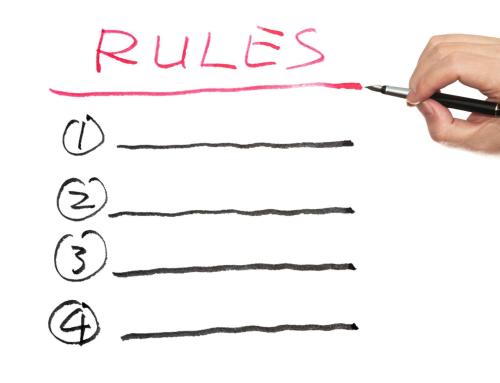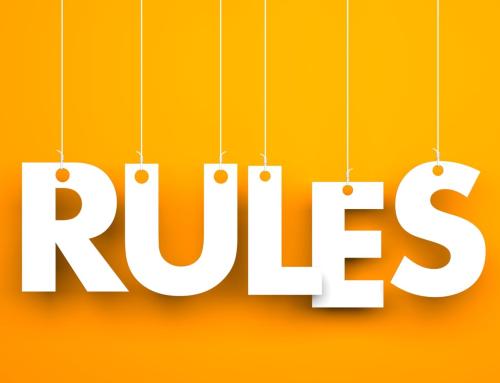If you happened to be someone living in a Western nation, the Anglo-American world specifically, you would be hard-pressed to come by the word ‘masculinity’, unless it is in association with something negative, problematic, controversial, or toxic.
The words ‘toxic’ and ‘masculinity’ have become conceptual bedfellows, in that it has become almost impossible to separate the two words.
As a simple exercise, try Googling ‘masculinity’, and look at the results, particularly the news-related content that corresponds to the keyword: as the results would invariably contain references to something negative, referring to acts that relate to aggression, violence, and some form of physical or mental harm; with associations with sexism and homophobia not too far behind.
Whenever the word masculine is evoked, it is invariably associated with or implied to relate to something that society best does away with, or at least limit or work to curtail.
Masculinity, in its current, dominant, and as we shall see, rather one-dimensional understanding, one that is making its waves in popular culture, has come to mean something inherently bad (i.e. toxic). But why though?
Why is masculinity viewed so negatively today?
To answer this question, the first step would be to understand what is meant by the word ‘masculinity’, and why it has come to be associated with that which is negative. To answer these questions, we need to first understand what is meant by the word ‘masculinity’.
What is Masculinity?
The famous tale of David and Goliath that some of us may have heard of, is a story that touches on the subjects of honor, loyalty, patriotism, and above all courage. It is a story of how the little, the small, the weak; those who stand little chance against insurmountable odds are able to overcome serious challenges, and do great things, with grit and application.
 In other words, David and Goliath is the emblematic story of masculine strength in the face of real danger.
In other words, David and Goliath is the emblematic story of masculine strength in the face of real danger.
Whilst much has been made of the courage shown by the young man David in going up against an eleven-foot-tall giant, or of his trust in the Almighty, what is often missed, ignored, or downplayed, is the centrality of the masculine spirit that underpins the tale.
So what is masculinity in this context? It is the willingness to lead, take risks, to stand up for the right cause or beliefs. And yes, it is also about learning and preparation. In sum, it is about experience and growth.
There is a tendency to view David’s battle against the Philistine warrior as something that happened out of the blue: that of some young novice, with just a few stones and a sling going up against a giant. Not so. As a shepherd, David’s life was one of constant danger.
In making his case to King Saul to give him permission to up against the Philistine, David cites his experience confronting lions and bears and even killing some of them. David, in other words, was a warrior.
Maybe not a conventional one who fought soldiers, but his being had been shaped by struggle.
So in the moments leading up to the battle, the young man was not some hapless weakling heading into a battle that he was certain to lose.
Rather his journey into battle was the culmination of a life that functioned as a rite of passage: challenging and refining his core being so that he was ready on the day.
Fast forward to the present day, how many of us men, have gone through life with experiences that are comparable to the great Israelite king? How many of us have come face to face with, not death per se, but moments that challenged our very being? That shook us to the core? That made us question who we are as men?
The Absence of a Rite of Passage

The rite of passage is one of the key stages of development that modern men, especially in the West, lack. Unlike in more ‘primitive’ tribal cultures, where the rite of passage is a more formal process, where the pathway from boyhood to manhood was mapped out, with designated rituals and rewards, overseen by the elders.
In such societies becoming a man meant undergoing a transformative process, where the boy is required to prove his metal.
In the case of David, the ‘rite’ he had to go through was that of life itself: The harsh, and unforgiving nature of life in the ancient world, one that compelled the boy to grow and mature faster, but to do so in a way that compelled him to get out of his comfort zone, challenge his beliefs, driving him to become a stronger person in the harsh reality of life. This is what makes a masculine man, or simply, a man.
If you are a young man or any man really, who happens to be reading this, have you ever felt constrained by the world around you when it comes to your true self? Do you feel there is some invisible force that is limiting your potential to go out and express yourself?
Today, with the potential exception of men who join the military, or those who excel in team sports, many boys who have been raised in the Western world: in post-industrial societies, characterized by consumerism, a culture of risk avoidance, unless it involves economic ventures, is one where the masculine core of their being, one that thrives in competition, uncertainty and a little bit of pain, remains untapped.
Or worse it is actively suppressed and weakened. Weakened by a world that is increasingly not just pro-female or feminine, but one that is equally suspicious of the dark power of the masculine.
This subtle oppression of the masculine has been caused by many factors. One of which is the lack of active participation of fathers in the lives of their sons, and by extension the lack of healthy role models for boys and young men as they mature in life. In other words, it is the problem of the lack of male leadership.
This problem will be touched on later. For now, it is worth pondering the words of Tyler Durden from the 1999 classic Fight Club: “We're a generation of men raised by women”.
‘Masculinity’ in Popular Culture
Looking at popular culture today there is a clear deficit in positive representations of men: Examples of men being portrayed as competent, strong, driven, courageous, whilst also being protective and caring for those they love, are increasingly rare.
I don’t think I need to emphasize the growing pervasiveness of select social narratives and ideologies that seem hellbent on advancing certain narratives on gender, and sexuality. Many of which have little or nothing to offer men who wish to find the pathway that leads to manhood, and one day be comfortable in their masculinity.

The rise of feminism, and other forces, whose aim is to “fight” for gender equality, and other such goals, has even spilled over into popular culture, resulting in movies, television, and other media outlets pushing the narrative of women in “empowered” roles.
Which in practice has meant the presentation of women playing roles that were traditionally held by men. One that has resulted in the demotion of men from these very same roles.
The Lack of Role Models
If you are a cinephile, particularly the Anglo-American variety, you may have noticed a persistent rise in female-led movies and TV shows in recent times.
The notion of the empowered female character is everywhere in vogue. Which is supposed to be great for everybody! But with it, unsurprisingly, has come a declining number of positive roles involving men.
Gone are the days of Aragon from The Lord of the Rings, or Jack Bauer from 24. Heroic men did great things and were willing to sacrifice everything for a noble cause. The popular culture of today is dominated by Mary Sues who can ‘handle themselves’, and gender-swapped superheroines who don’t men to rescue them or, given their decreasing femininity, f**k them.

Do you as a man feel that society is not presenting you (or your sexuality) in a positive light? Do you feel like an outsider, looking in? A virtual outcast, without a place to call your own? You are not alone.
Looking at the culture at large, we see the rise of the metrosexual male: the city-dwelling guy who is highly sensitive to the world around him, with a keen sense for fashion and grooming and is also in touch with his feminine side.
The sort of guy who does not wish to offend anybody, and in turn does not like experiencing discomfort.
Now there is nothing wrong with having a fashion sense and being sensitive to the world around you. The problem lies with the idea of sensitivity.
The old adage that women prefer men who are rough around the edges holds true, despite what is communicated by the organs of culture: The sort of men who are willing to take risks, stand up for themselves, including when it comes to the women in their lives.
The type of men who are able to make a commitment and be ready to face the consequence for their actions.
Such attributes are not likely to form the core of these uber-sensitive, nice guy types that society seems to be demanding. Nor does walking such a path promise you a life without conflict and hardship.
The are very things that help mold boys into men, or help men become the best version of themselves.
This ‘ideal' of the sensitive, understanding, considerate metrosexual male is an archetype, one that is raised up as the model for the modern man to follow. Which, if taken to its logical end appears to be inherently opposed to authentic masculinity: one that takes charge, fights for what is right and grows in the face of struggle.
‘Toxic Masculinity’ and The Battle against Biology
One of the problems when it comes to firmly grounding the reality of masculinity in society today is the dominance of the view that taints the idea of the masculine as something negative, either inherently or by association. To assign a certain behavior or set of beliefs as ‘masculine’ is often meant as a critic.

There is something delegitimizing about the terms masculine and masculinity today. This is unfortunate. For masculinity done right is a force for good. Yes, and that means even when it is operating as a destructive force.
But before we get to the positives of masculinity, and why it is much needed in the world today, we need to understand how we got to a stage where masculinity has gotten such a bad rap.
The answer to this corresponds to a question: Is masculinity a function of one’s biological sex, or the social environment? Is it biology or society that determines the masculine or feminine character of a person? The answer to this question is straightforward: whilst biology is not the only variable that determines a person’s social orientation; however when it comes to traditional masculine traits like risking taking, combativeness, aggression, etc. It is the central factor.
The Socialization Factor
This goes back to the ‘old’ debate about why boys like to play with trucks, cars, and superheroes, whilst girls prefer to play with Barbie dolls, and tea sets. But the point remains.
Once boys attain a certain age, and we’re only talking about pre-adolescence, the tendency to fight, get into physical tussles, and establish hierarchies, however superficial, are all manifestations of a deeper behavioral logic that has biological origins.
Admittedly these are controversial points. Even during the era when the debate on gender was limited to biological boys and girls; with the question over what role socialization played on how boys and girls behaved, the kind of interests they had, and later, their favored career choices.
As things turned out, the socialization school appears to have come out on top. With the agenda to “normalize” gender roles, in the name of equality being ingrained into society. This meant that masculinity, and underlying it the biological sexuality of men, and how it operates in the social sphere was suppressed.
So the dilemma of masculinity in relation to sex relates to the present character society, which is a product of the attempts to weaken, purposefully or otherwise, the legitimate differences that stem from biology.
Points which have been noted by the prominent political scientist and historian Francis Fukuyama, writing in 2002, in a book on the future of humanity, he observers the importance of biological differences between males and females, their effect on social roles, and why it is problematic to ignore them, given their universal character (1).
If you have any doubts about sex differences between men and women matter, look at what’s happening in Ukraine: A day after the outbreak of armed conflict, President Zelensky signed a decree that forbade Ukrainian men between the ages of 18 to 60 from leaving the country. Instead, they were to remain in the country and fight(2). Why just the men? Shouldn't the women also be sent to the front line?
A Leadership Question
The answer to the above question is obvious: men, owing to their physiology are far more disposed towards and capable of violence and aggression. Which is much needed in a time of war. But what happens in peacetime? What should men do with all that untapped fighting energy?
So when it comes to the conflictual, the destructive, the war-like traits found in men, whilst seemingly problematic, nonetheless serve a vital purpose in upholding society. But to get to that stage where these forces work in unison for the greater good brings us to the topic of leadership.
The kind of leadership that can tame, guide, and direct the masculine core at the heart of men, well most men, towards something creative and productive.
The inability of modern society to provide that framework that can shape and harness this core: one that has the capacity for destruction, but also the potential for great good, is the core problem with masculinity today.
When you have people coming out of the woodwork blaming all the ills of society-much of it admittedly caused by men-on some version of “toxic” masculinity; note that the real problem lies with the absence of leadership, guidance, a firm hand that can teach boys and young men on how to get in touch their core self, how to harness its power, and to direct it towards something constructive. A leadership vacuum that can help boys and men reach the ideal of true masculinity.
Discovering True Masculinity
So how does society discover the masculine ideal? Well, it might help if it starts by recognizing the importance of the biological. And later its connection with social and psychological. Whilst one must be aware of those with different orientations and duly respect them.
For the vast majority of humans, biology is destiny. A point which is especially true when it comes to men, for unlike the females of our species, men are called to prove themselves in the world.
Men if they are to succeed in the arena of work, women and beyond need to manifest characteristics that contribute positively in these areas. Which in practice entails curtailing the destructive potential of their masculinity, whilst harnessing their power to meet goals that can aid them in their quest to become stronger, more capable masculine men.
So what is masculinity? Masculinity ties with what is male. For its converse, the feminine is a function of the female. In other words, to be masculine implies a connection with the biological. A logical connection that extends between masculinity and manhood, and what connects them: mindset.
Manhood is a state in life that must be attained, and it can only be done so by going through a rite of passage. Which need not just be a ritual. It could also be a process. It could be committing yourself to a new cause, habit, or mission in life. Or it could be about finding a community of men who are committed to the same goals, who are working to achieve objectives that are true to your being, that help you become strong. If you are interested here is a quick overview of the steps that you can take to discover the masculine ideal:
Action Plan for Discovering the Masculine Ideal
- Step 01: Identify a problem in your life: whether it is in finance, relationships, fitness, personal discipline, etc.
- Step 02: Try to understand how these problems or inadequacies relate to who you are as a man, and what could be lacking in terms of values, guidance, and leadership.
- Step 03: Recognize that what you are going through is not unique to you. There are millions of men out there who are struggling with these very things. And it is NOT something that you have to face alone.
- Step 04: Reach out. As the Great Roman Emperor Marcus Aurelius once said: “Don’t be ashamed of needing help. You have a duty to fulfill just like a soldier on the wall of battle. So what if you are injured and can’t climb up without another soldier’s help?”. So reach out, and help will come your way.
- Step 05: And this goes without saying: Get ready to grind. Nothing comes easy in life. No matter how much support, guidance and help you receive, you gotta put in the work. You are not going to ‘bend it like Beckham’ (for any football fans out there) if you haven’t spent the time training for it.
If you want to be among the best, be willing to learn from one.
If you are truly serious about tapping into the masculine ideal and achieve results fast then then the coaching path with the Bulldog himself could be the way forward for you. Unlock your Potential with Bulldog Mindset Coaching.
In Conclusion
Embracing the Masculine Ideal is only the start. Knowing where you want to go from here is the crucial next step.
Do want to see real change? Is there an area of your life where you wish to see improvement?
Maybe you want to increase your income, grow your social circle and increase your public presence? Or maybe you want to build a great physique? Whatever your personal and professional goals are, there is a mindset equation at the center.
Remember it's never too late to get started. Boys need a rite of passage to become men. Men need leaders to help them become the best version of themselves. This is the masculine ideal that must be rediscovered. But it is also a process that needs the right framework to make it happen.
In the gender-confused times that we are in, such notions may seem outdated, or for some, bigoted. But for the millions of men who don’t make it in life: those who fill our prisons, homeless shelters, and roam the streets with no hope for a better future, the chance to connect with their masculinity at the right time could have made all the difference. It is time that you and I helped make a difference.
1. Fukuyama, F., (2022) Our Posthuman Future, London: Profile Books.
2. Republic World, (2022) Zelensky Forbids Men Aged 18-60 From Leaving Ukraine As Russian Ground Troops Move Closer. [ONLINE] Available at: https://www.republicworld.com/world-news/russia-ukraine-crisis/zelensky-forbids-men-aged-18-60-from-leaving-ukraine-as-russian-ground-troops-move-closer-articleshow.html. [Accessed 6 April 2022].








[…] For these things are not a given. Simply because the person in question happens to be male does not mean he will necessarily be predisposed to pursue outcomes that define the idea or ideal of masculinity. […]